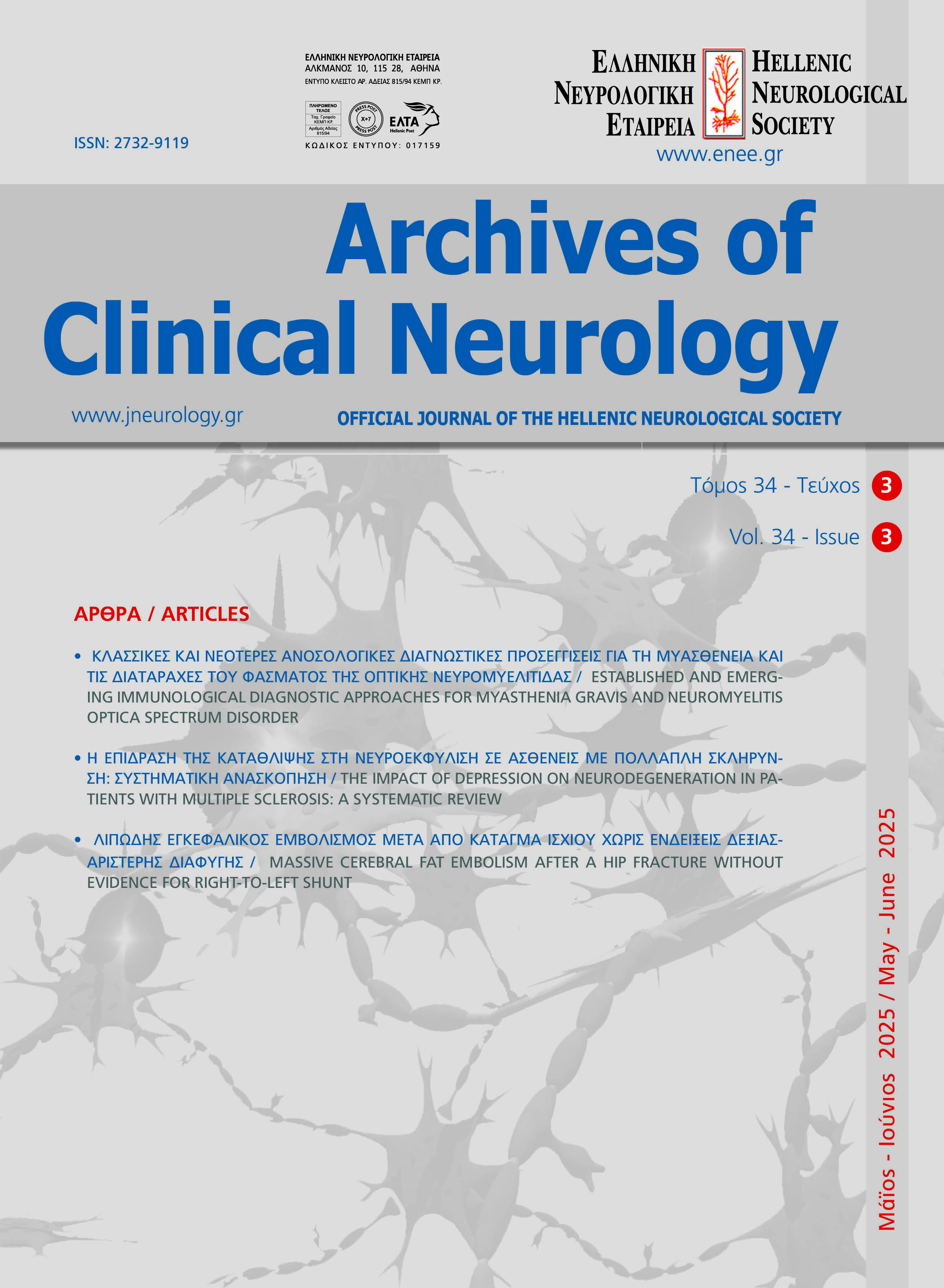THE IMPACT OF DEPRESSION ON NEURODEGENERATION IN PATIENTS WITH MULTIPLE SCLEROSIS: A SYSTEMATIC REVIEW
Keywords:
Πολλαπλή Σκλήρυνση, Κατάθλιψη, Νευροεκφύλιση, Φλεγμονή, Multiple Sclerosis, Depression, Neurodegeneration, InflammationAbstract
Multiple Sclerosis is a chronic neurodegenerative disease that is often accompanied by depression. The aim of this study is to examine the relationship between depression and neurodegeneration in multiple sclerosis. A systematic review was conducted and studies were searched in PubMed, Scopus and Web of Science. Forty-six studies that met the inclusion criteria were included. It was found that depression in multiple sclerosis is associated with increased neuroinflammation, increased proinflammatory cytokines, oxidative stress and mitochondrial dysfunction, which contribute to neuronal damage. Structural brain changes, such as hippocampal atrophy and reduced cortical volume, are more pronounced in depressed multiple sclerosis patients, which are associated with cognitive decline. Furthermore, lower levels of brain-derived neurotrophic factor in depressed patients with multiple sclerosis suggest reduced neuroprotection. In conclusion, depression may accelerate neurodegeneration in multiple sclerosis through inflammatory and neurotoxic pathways. Early diagnosis and treatment of depression could reduce disease progression and improve patient outcomes.


